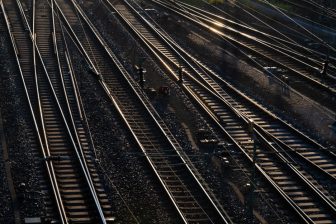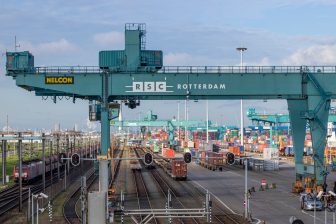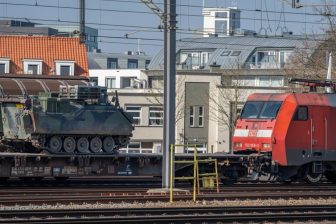Petition calls for Dutch action on rail freight policy
A group of more than 50 rail freight stakeholders has presented a petition to the Dutch Parliament, calling for action to help stimulate rail cargo transport and put it on a par with its German counterparts.
Organised by Dutch rail pressure group RailGood, Green light for freight transport by rail has been signed operators, freight forwarders, logistics companies, terminals, ports and local governments, along with freight representative associations. A Dutch-German delegation of rail freight entrepreneurs handed over the petition to the Standing Committee for Infrastructure and Water Management of the House of Representatives.
Influential mouthpiece
Established in February 2016, RailGood has become an increasingly influential mouthpiece for the industry, providing the management of external relations to companies in the freight sector in The Netherlands. Its member organisations are Rotterdam Rail Feeding, LTE Netherlands, TX Logistik, DistriRail, Lineas, Captrain Netherlands, Rail Force One, Rail Transport Services and Shunter.
Calling on the House to ‘stimulate’ rail freight transport through effective government policy, Rail Good says: “The Netherlands should no longer be out of step with Germany due to extremely high costs. Shippers often opt for rail as soon as the weather is attractive…stimulating rail freight transport is good for the quality of life and economy of The Netherlands.”
Masterplan for Rail Freight
Back in June Germany took what was seen as a landmark decision when the government announced that, in a collective agreement with the rail industry, it was going to invest around 350 million Euros to halve track charges for rail freight traffic as part of the ‘Masterplan for Rail Freight’. RailGood believes this move could jeopardise the competitive position of the Dutch port as a gate for freight forwarders to the European hinterland, and so is urging its own government to take action to ensure a level playing field.
“The competitive position of rail freight is under serious pressure,” it says. “The introduction of..ERTMS..and the exponential increase in the costs of rail use lead to loss-making exploitation and therefore a lack of investment and innovation in the sector.”
Track usage costs
Specifically, the petition calls for:
- A substantial reduction in the infrastructure charge for rail freight transport so that the track usage costs come in line with truck and inland navigation
- Stopping the current ERTMS roll-out, connecting with German policy for security systems and use only proven technologies that will last for decades (RailGood wrote to the House of Representatives in October voicing concerns about ERTMS deployment, following a report by the European Court of Auditors which concluded ERTMS implementation was ‘insufficient’ and ‘too fragmented
- Compensate carriers for costs issued by Dutch government for rail infrastructure, and costs arising from national legislation on top of European laws and regulations.
Attractive to shippers
RailGood says the advantages for The Netherlands are a significant CO2 reduction, reduced pressure on the road network and strong growth of rail freight as it becomes attractive to shippers. It also says that an enhanced rail freight sector will make a substantial contribution to making freight transportation ‘green’ within the context of the Paris Climate Agreement, and improve the accessibility of Dutch seaports, industry and business. RailGood adds that it expects the new government and the Lower House to ensure that this policy is ‘established and is executed’, and be in line with the German Masterplan, including the halving of track costs.
The petition can be viewed here, where there are also links to various supporting documents (Dutch and English).





